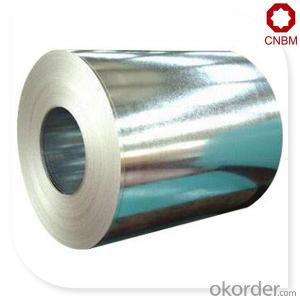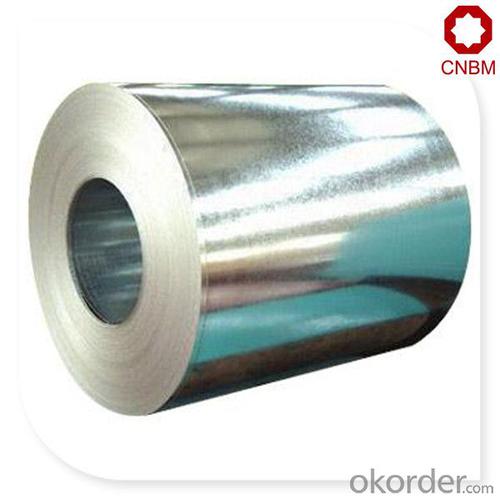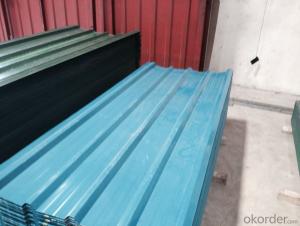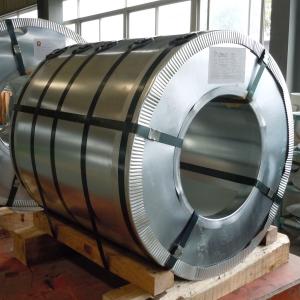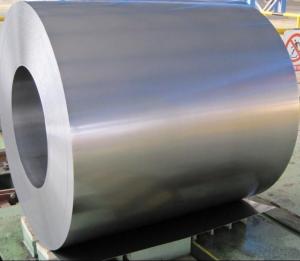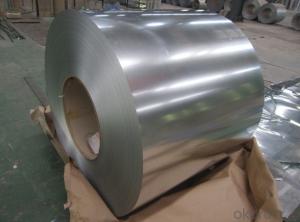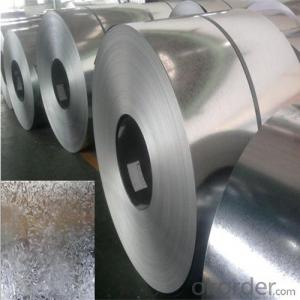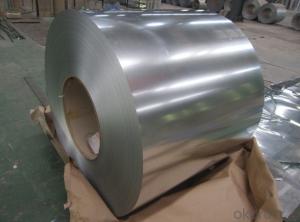Hot -dip galvanized steel coil CS quality
- Loading Port:
- China main port
- Payment Terms:
- TT OR LC
- Min Order Qty:
- 25 m.t.
- Supply Capability:
- 30000 m.t./month
OKorder Service Pledge
OKorder Financial Service
You Might Also Like
Specification
Product Description:
Hot-dip galvanized steel coils are available with a pure zinc coating through the hot-dip galvanizing process. It offers the economy, strength and formability of steel combined with the corrosion resistance of zinc. The hot-dip process is the process by which steel gets coated in layers of zinc to protect against rust. It is especially useful for countless outdoor and industrial applications. Production of cold formed corrugated sheets and profiles for roofing, cladding, decking, tiles, sandwich walls, rainwater protective systems, air conditioning duct as well as electrical appliances and engineering.
Main Features of the Hot-Dip Galvanized Steel Sheet:
• Excellent process capability
• Smooth and flat surface
• Workability, durability
• Excellent anticorrosive property
• High strength
• Good formability
• Good visual effect
Standard and Grade :
Hot-dip galvanized steel coil | ||||
ASTM A653M-06a | EN10327:2004/ 10326:2004 | JISG 3302-2010 | AS-NZS 4534-2006 | |
Commercial quality | CS | DX51D+Z | SGCC | G1+Z |
Structure steel | SS GRADE 230 | S220GD+Z | SGC340 | G250+Z |
SS GRADE 255 | S250GD+Z | SGC400 | G330+Z | |
SS GRADE 275 | S280GD+Z | SGC440 | G350+Z | |
SS GRADE 340 | S320GD+Z | SGC490 | G450+Z | |
SS GRADE550 | S350GD+Z | SGC570 | G550+Z | |
S550GD+Z | G550+Z | |||
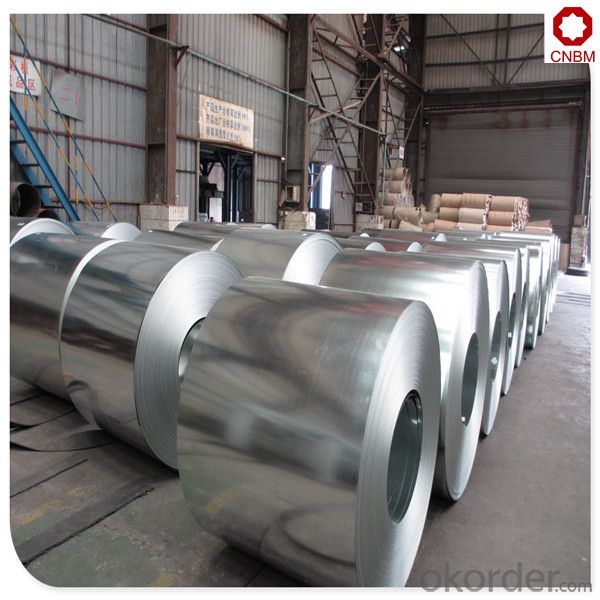
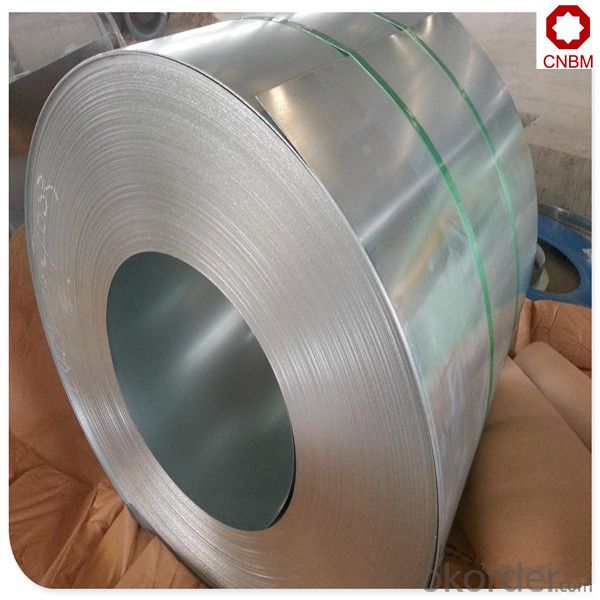
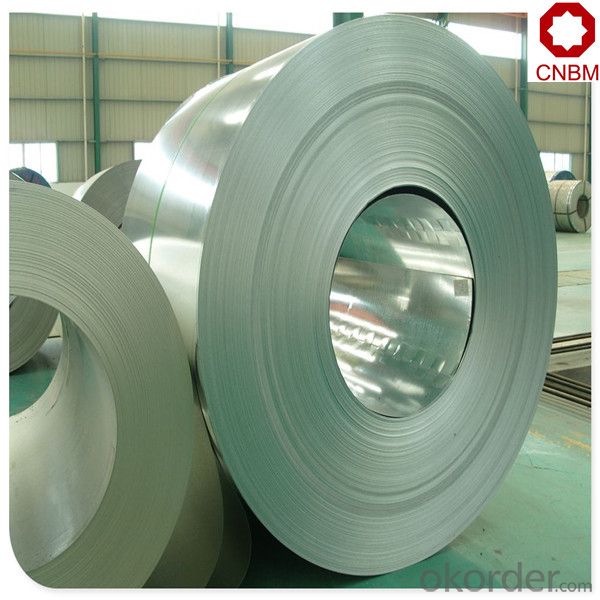
FAQ:
Q: How do you guarantee the quality of your product?
A: Every process will be checked by responsible QC which insures every product's quality.
Q: How much is your delivery time?
A: Normally within 30 days of receipt of LC original or prepayment, but mostly according to the specific requirements or the quantity
Q: I need sample, could you support?
A: We can supply you with the sample for free, but the delivery charges will be covered by our customers. For avoiding the misunderstanding, it is appreciated if you can provide the International Express Account for Freight Collect. Also you can have a visit to us, welcome to CNBM!
- Q: How are steel coils used in the manufacturing of tools and equipment?
- Steel coils are used in the manufacturing of tools and equipment as they serve as the primary raw material for many applications. The coils are first processed to the desired thickness and then cut into different shapes and sizes to create various components. These components are then further processed, machined, or assembled to form the final tools and equipment. Steel coils provide the necessary strength, durability, and versatility required in the manufacturing process, making them an essential element in producing high-quality tools and equipment.
- Q: How are steel coils inspected for formability using forming tests?
- Steel coils are inspected for formability using forming tests by subjecting them to various forming processes such as bending, stretching, or deep drawing. These tests help evaluate the ability of the steel to undergo deformation without cracking or tearing. The formed samples are then inspected for any defects or imperfections, such as surface irregularities, fractures, or wrinkling. This allows manufacturers to assess the quality and suitability of the steel coils for specific applications, ensuring they meet the required standards of formability.
- Q: How are steel coils used in the manufacturing of industrial machinery?
- Steel coils are used in the manufacturing of industrial machinery as raw material for various components, such as frames, brackets, and supports. The coils are processed by cutting, bending, and shaping to create specific parts that provide stability, strength, and structure to the machinery. Additionally, steel coils are often used for creating gears, shafts, and other moving parts that require high durability and resistance to wear and tear.
- Q: How are steel coils processed and shaped into different products?
- Different products are manufactured from steel coils through a series of manufacturing processes. The initial step is referred to as uncoiling, which entails the unwinding and straightening of the steel coil. Typically, this is achieved by feeding the coil through a machine called a decoiler. Once the coil is uncoiled, it proceeds to the leveling process. The objective of this step is to eliminate any unevenness or warping in the steel. The coil is passed through a set of rollers that exert pressure and flatten the steel to achieve the desired thickness. This ensures that the steel is uniform and prepared for further processing. Following the leveling process, the steel is usually cut into smaller pieces or sheets. Machines such as shears or slitters are employed for this purpose, enabling the steel to be cut into various widths or lengths. The specific dimensions depend on the requirements of the particular product being manufactured. After the steel is cut, it can undergo additional shaping processes. One commonly used method is roll forming, in which the steel is gradually shaped into the desired profile by passing it through a series of rollers. This technique is frequently utilized in the production of roofing sheets, wall panels, or beams. Another widely used shaping process is stamping. In stamping, the steel is pressed between a die and a punch to create intricate shapes or patterns. This method is commonly employed in the automotive industry for the production of components such as car body panels or engine parts. In addition to shaping, the steel may also undergo surface treatments or coatings to enhance its properties or improve its appearance. This can involve processes like galvanizing, where a layer of zinc is applied to safeguard the steel against corrosion, or painting to provide a decorative finish. In conclusion, the process of shaping steel coils into different products encompasses a combination of cutting, shaping, and surface treatments. These processes are meticulously executed to ensure that the steel meets the required specifications and is suitable for use in various industries.
- Q: What are the factors that determine the price of steel coils?
- There are several factors that determine the price of steel coils. 1. Raw material costs: The cost of raw materials, such as iron ore and coal, which are used in the production of steel, directly affect the price of steel coils. Any fluctuations in the prices of these raw materials can impact the final price of steel coils. 2. Energy costs: The energy required to produce steel coils, including electricity and fuel, is a significant factor in determining their price. Fluctuations in energy costs, such as changes in oil prices or electricity tariffs, can influence the overall price of steel coils. 3. Demand and supply: The demand and supply dynamics in the steel industry play a crucial role in determining the price of steel coils. When demand is high and supply is limited, prices tend to increase. Conversely, when demand is low and supply exceeds demand, prices tend to decrease. 4. Market conditions: The overall economic conditions and market trends can impact the price of steel coils. Factors such as economic growth, industrial production, and construction activities can influence the demand for steel and, consequently, its price. 5. Production and labor costs: The costs associated with steel coil production, including labor, equipment, maintenance, and transportation, contribute to the final price. Factors like labor wages, technological advancements, and production efficiency can influence these costs and, subsequently, the price of steel coils. 6. Trade policies and tariffs: Trade policies, including import and export tariffs, can affect the price of steel coils. Imposition of higher import tariffs can lead to an increase in domestic steel prices, while lower tariffs may result in lower prices due to increased competition from imports. 7. Currency exchange rates: Steel is a globally traded commodity, and fluctuations in currency exchange rates can impact its price. If the currency in which steel is priced strengthens against other currencies, it can result in higher prices for steel coils. It is important to note that these factors are interrelated and can vary depending on the specific market conditions, geographical location, and other external factors.
- Q: What are the different types of steel coil surface treatments?
- There are several different types of steel coil surface treatments, including hot-dip galvanizing, electro-galvanizing, painting, and powder coating.
- Q: Can steel coils be used in the production of HVAC systems?
- Yes, steel coils can be used in the production of HVAC (heating, ventilation, and air conditioning) systems. Steel coils are commonly used in the manufacturing of HVAC equipment such as air handlers, condenser coils, evaporator coils, and heat exchangers. Steel coils provide durability and strength, making them suitable for withstanding the high pressures and temperatures involved in HVAC operations. Additionally, steel coils offer good heat transfer properties, allowing for efficient heat exchange between the refrigerant and the air being conditioned. Overall, steel coils are a reliable and commonly used component in the production of HVAC systems.
- Q: How are steel coils inspected for chemical composition?
- Steel coils are inspected for chemical composition through a process known as spectroscopy. Spectroscopy involves the use of a spectrometer, which is an instrument that analyzes the light emitted or absorbed by a sample to determine its chemical composition. In the case of steel coils, a small sample is usually taken from the coil and prepared for analysis. This sample is then placed in the spectrometer, which emits a beam of light onto the sample. The light interacts with the atoms and molecules in the sample, causing them to emit or absorb specific wavelengths of light. The spectrometer measures the intensity of the emitted or absorbed light at different wavelengths and creates a spectrum, which is essentially a unique fingerprint for the sample. This spectrum is then compared to a database of known spectra for different elements and compounds to determine the chemical composition of the steel. The spectroscopic analysis can identify the presence and concentration of various elements such as carbon, manganese, phosphorus, sulfur, and other trace elements that may be present in the steel. These elements play a crucial role in determining the steel's properties, strength, and suitability for different applications. Inspection for chemical composition is essential in the steel industry to ensure that the steel meets the required specifications and standards. Any deviation from the desired chemical composition can affect the steel's performance and may lead to structural failures or other defects. Overall, spectroscopy provides a highly accurate and reliable method for inspecting steel coils for their chemical composition, helping to ensure the quality and integrity of the steel products.
- Q: What is the use for spring steel that take advantage of its unique properties?
- The primary use is for springs. It can be deflected to a large extent by applying a force it will return to its original shape when the force is removed. The force/displacement relationship tends to be a constant. A lesser use is to use spring steel wire as a vibrating string on a stringed instrument.
- Q: What are the different coil winding methods used for steel coils?
- The different coil winding methods used for steel coils include cross-winding, helical winding, and layer winding. Cross-winding involves winding the steel coil in a crisscross pattern to ensure even distribution of the material. Helical winding involves winding the steel coil in a spiral pattern, which provides strength and stability to the coil. Layer winding involves winding the steel coil in layers, with each layer placed on top of the previous one, ensuring efficient use of space and easy unwinding of the coil.
Send your message to us
Hot -dip galvanized steel coil CS quality
- Loading Port:
- China main port
- Payment Terms:
- TT OR LC
- Min Order Qty:
- 25 m.t.
- Supply Capability:
- 30000 m.t./month
OKorder Service Pledge
OKorder Financial Service
Similar products
Hot products
Hot Searches
Related keywords
